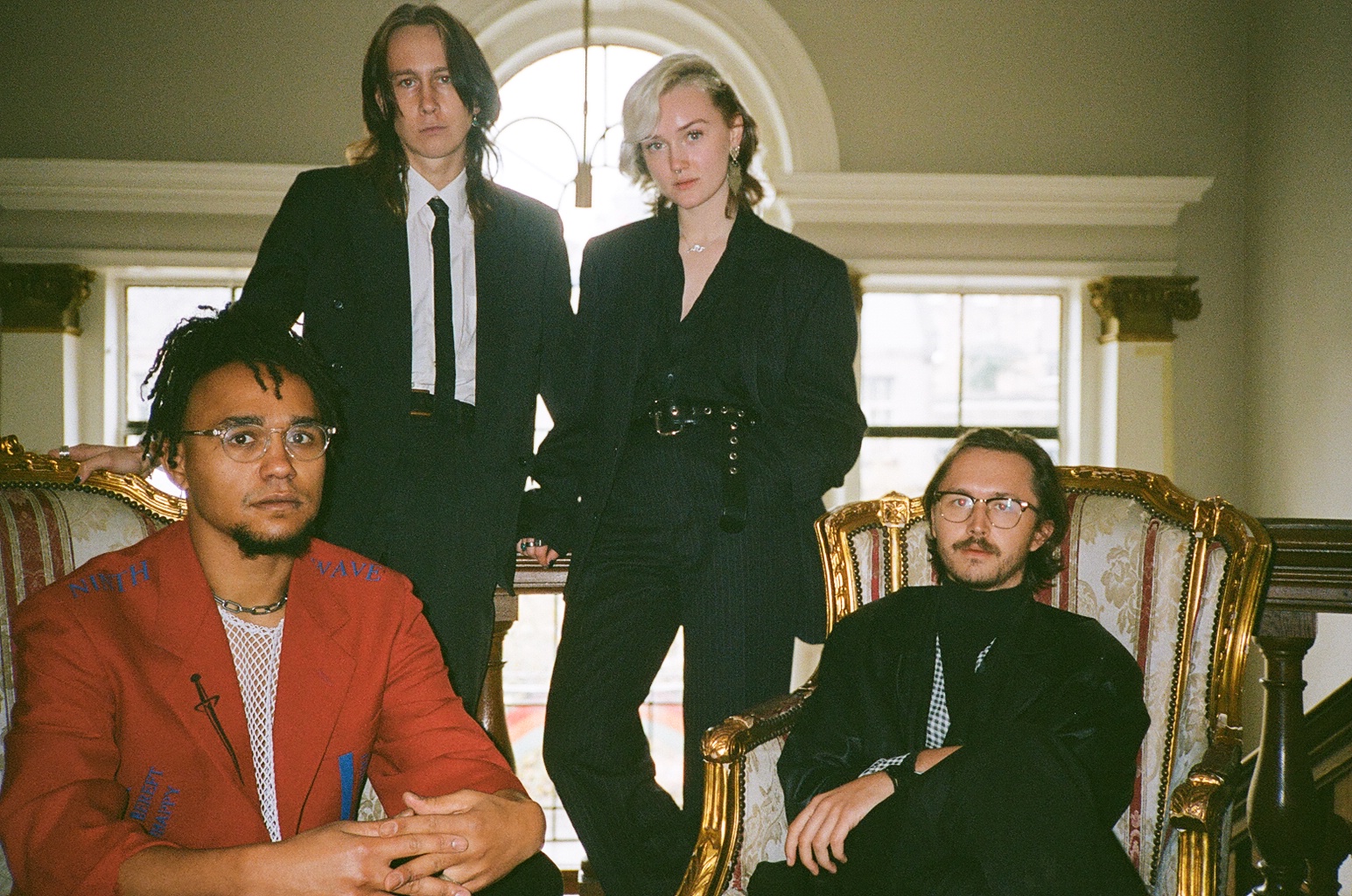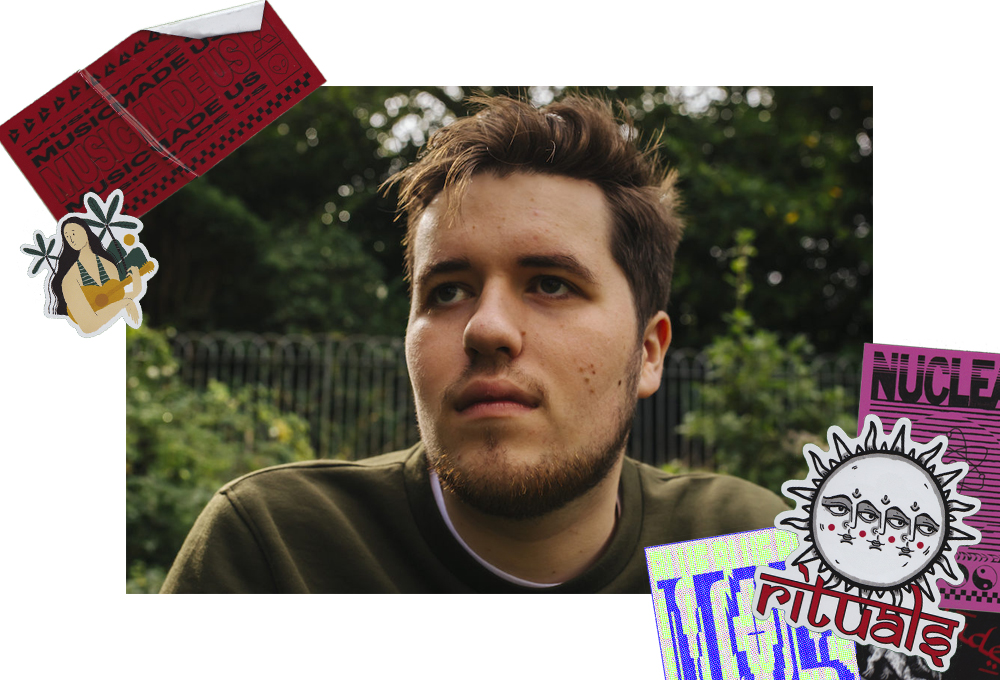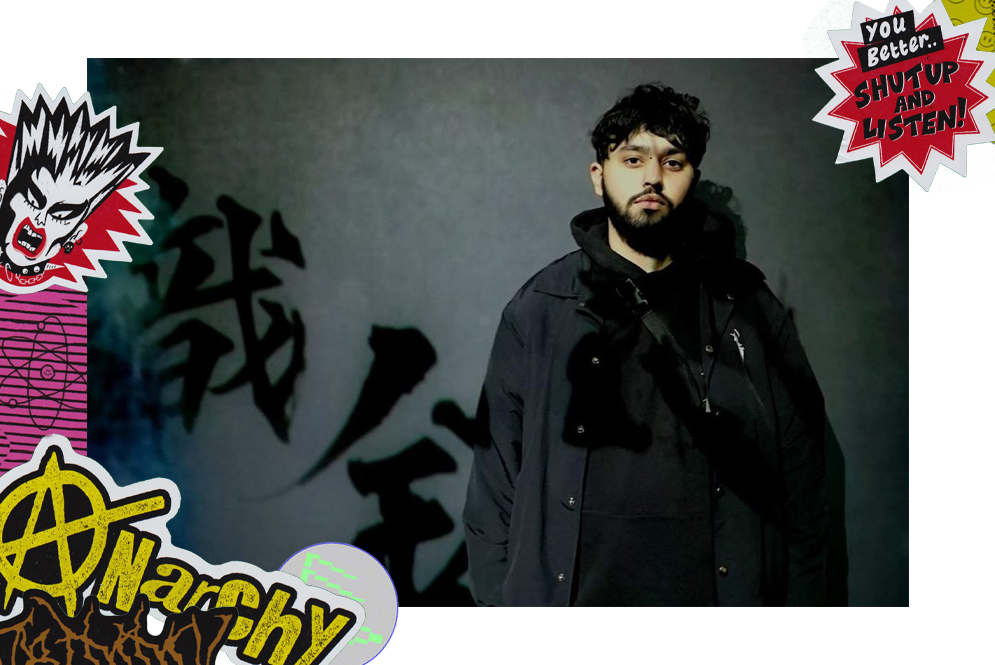Earlier this year, we announced our latest partnership with DIY magazine to celebrate our #MusicMadeUs campaign. As part of this new partnership, students from across our colleges interviewed artists and industry professionals in collaboration with DIY and through the lens of Music Made Us. They also received guidance and mentorship sessions before the interview with DIY’s journalism and editorial team.
Here BIMM Institute Birmingham’s Jessica Brett interviews Amelia Kidd of The Ninth Wave about taking an emotional approach to music, how the band has developed over time, and refining their sound.
The Ninth Wave embrace the pangs of raging youth with a musical exploration of sadness. One beautiful storyteller in the mix is Amelia Kidd, who calls in via Zoom on a miserable Glasgow morning. Amelia describes the band’s latest single, ‘Everything Will Be Fine’, as outside of their comfort zone, as the unfamiliar territory of optimism is explored, greeting these difficult times with a peaceful positivity. “It’s always good to force yourself out of where you feel comfortable,” she says. In their most honest album yet to come, the band untangle the subject of mental health.
Dance away those fucking tears you know.
That transition began when a newfound confidence emerged in their ‘Happy Days’ EP, released last year. In the stripped-back nature of the songs, the group lack any fear to convey the strength of their messages with the same power that the raw and untamed energy of their first album, ‘Infancy’, achieved in 2019. Amelia remembers the uncertainty in how the band’s potently emotional approach to music would initially be received. “Everything’s pure sad, does anybody want to be sad?” she laughs. “Embrace the sadness, as long as you use it, you recognise it and process it, then that’s where the change comes.” She urges us to “dance away those fucking tears you know.” It’s been the cathartic songwriting process that has allowed her to further realise herself. “Music is totally an outlet for all the things I wish I’d said at the time.”
She recalls a sweet story of the first song she wrote after her first heartbreak when she was about fourteen. “It was pure shit, it was so trash but I put it on Soundcloud and Facebook and the one person that messaged me like this is a really really good song, was Haydn. This boy that I’ve not spoken to in so long likes my song, maybe I should do it more.” That was the beginning of something special: Haydn would go on to draft Amelia into The Ninth Wave years later as a bass player, even though she didn’t actually play. Classically trained in piano and percussion from a very early age, she did soon learn, while Haydn could be found busking from the age of seven. But now, the group don’t just play their instruments, they feel them as malleable extensions of themselves, which makes the human essence of The Ninth Wave even more tangible.
The pressure to achieve academically has always loomed over Amelia, but after abandoning university to take music as a career seriously, “it felt like a tonne off [her] shoulders. Just doing something that you love, you know it in your heart when it’s right”, a spot on sentiment. Now, she likes to start the day off with a vinyl, setting the tone. “A lot of the time I’m making my own music, so I try not to listen to too much. If I’m just going about my day, I’ll always have headphones. I try and do most of my listening on vinyl so I’m forced to listen to everything because it feels more special than just hitting play on your phone or whatever.”
That album inspired me to do music… I just thought, this is everything that music needs to be.
At the age of fifteen, Amelia found Marika Hackman. “Her first album, ‘We Slept At Last’, is the most incredible album. I think it was the first time I ever heard an artist where I thought, oh my god this literally sounds like it has come from the inside of my head. I played it to my mum and she said, ‘she sounds like you, this could be you singing’. That album inspired me to do music… I just thought, this is everything that music needs to be.” Marika’s spirit lingers in The Ninth Wave’s sensory lyrics that lead listeners down intimate paths.
Even more recently, the band have developed immensely, really refining their sound. “I feel in a very different headspace mentally compared to where I was this time a year ago because of what the pandemic has put us through as individuals. I think you can hear that in the new album. It’s intense! It’s intense.”
That sense of growth isn’t just down to the group as individuals either; the buoyant atmosphere of the Scottish DIY scene continuously shapes bands into the best versions of themselves. “In Scotland, everyone is in it for the same reason,” where the fans are “real proper people who just want to enjoy themselves.” For Amelia, this “definitely makes a difference in building this independent mindset of, ‘we do this because we love it, not because it pays the bills.”
Our Music Made Us campaign is told through the students, graduates, journalists, experts and passionate people who have been shaped by this creative outlet. Discover their stories here.
Photo by Rory Barnes



